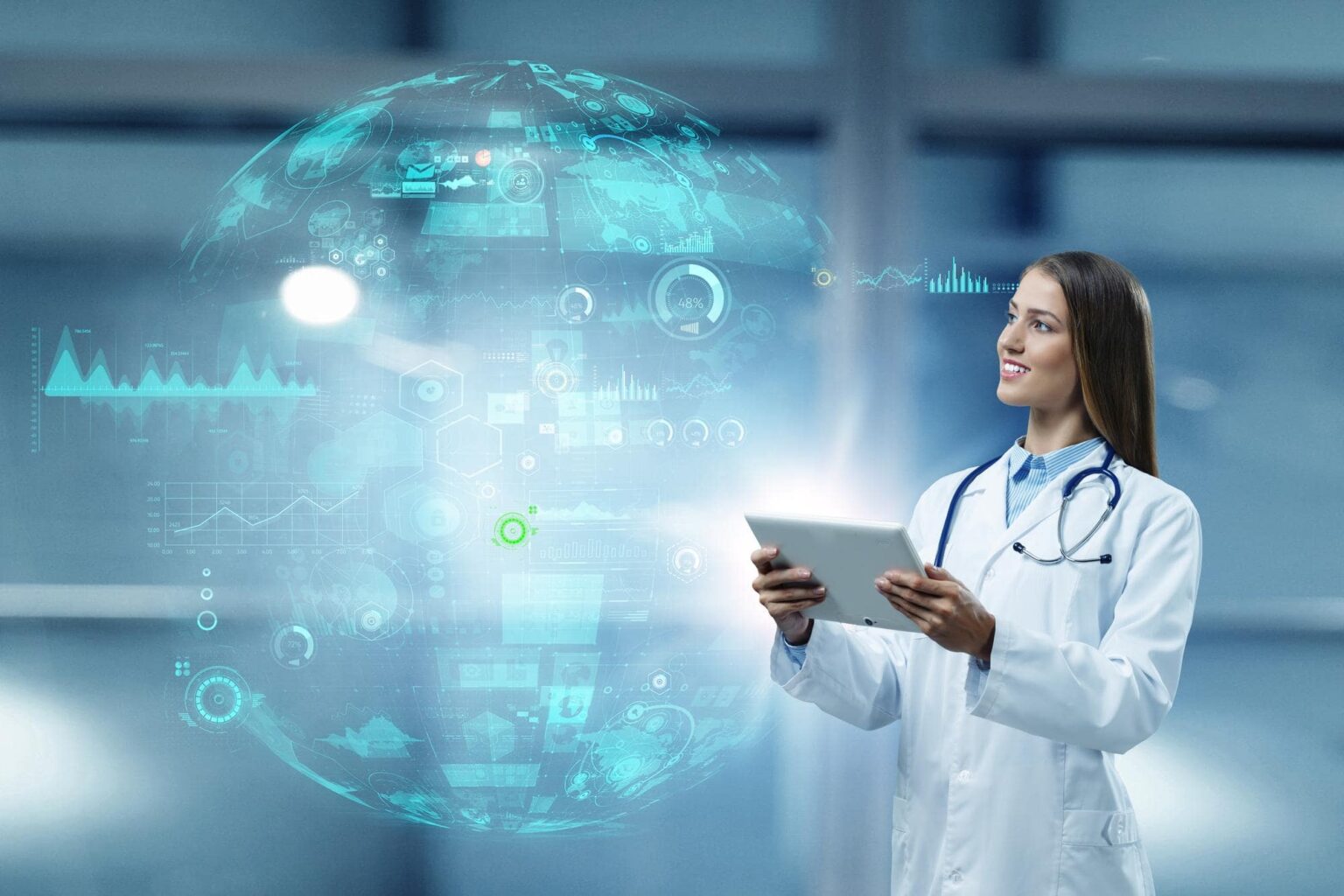The Internet of Medical Things (IoMT) refers to the network of interconnected medical devices, sensors, software applications, and healthcare systems that collect, transmit, and analyze patient health data. IoMT is revolutionizing healthcare monitoring and management in several ways:
- Remote Patient Monitoring: IoMT enables remote patient monitoring, allowing healthcare providers to monitor patients’ vital signs, health metrics, and symptoms from a distance. Wearable devices, such as fitness trackers or smartwatches, can continuously collect data like heart rate, blood pressure, activity levels, and sleep patterns. This real-time information can alert healthcare professionals to any abnormalities or changes in a patient’s condition, facilitating early intervention and personalized care.
- Chronic Disease Management: IoMT plays a crucial role in managing chronic diseases, such as diabetes, heart disease, and respiratory conditions. Connected devices, such as glucose monitors, blood pressure cuffs, and spirometers, can provide patients with real-time data and reminders for medication adherence, lifestyle modifications, and self-care. This proactive monitoring allows for better disease management, reduces hospitalizations, and improves overall quality of life for patients.
- Medication Management: IoMT devices can assist in medication management, helping patients adhere to their prescribed medication schedules. Smart pillboxes or medication dispensers can provide reminders and notifications for medication intake, track adherence, and send alerts to healthcare providers or caregivers if doses are missed. This technology helps prevent medication errors, improves treatment outcomes, and enhances patient safety.
- Telemedicine and Virtual Consultations: IoMT facilitates telemedicine and virtual consultations, enabling patients to connect with healthcare providers remotely. Through video conferencing platforms and secure communication channels, patients can receive medical advice, discuss symptoms, and receive follow-up care without the need for in-person visits. IoMT devices can transmit real-time data during these virtual consultations, allowing healthcare providers to make informed decisions based on accurate information.
- Health and Wellness Monitoring: IoMT devices extend beyond medical conditions and are also used for general health and wellness monitoring. Fitness trackers, smart scales, and sleep monitors collect data on physical activity, weight, and sleep patterns, helping individuals track their overall health status and make informed decisions regarding their lifestyle choices. This proactive approach to health monitoring can support preventive care and promote healthy behaviors.
- Data Analytics and Population Health: IoMT generates vast amounts of health data that can be analyzed using advanced analytics techniques. Aggregated and anonymized data can provide valuable insights into population health trends, disease patterns, and healthcare utilization. These insights can inform public health strategies, resource allocation, and the development of targeted interventions for specific communities or at-risk populations.
- Real-Time Emergency Response: IoMT devices equipped with location tracking and emergency response features can aid in emergency situations. For example, wearable devices with fall detection capabilities can automatically send alerts to emergency contacts or healthcare providers when a fall occurs. This rapid response can be critical in situations where immediate medical attention is required.
While IoMT offers numerous benefits, there are challenges to address, such as data privacy and security, interoperability between devices and systems, and ensuring the accuracy and reliability of the collected data. Additionally, it’s crucial to bridge the digital divide and ensure equitable access to IoMT technologies to avoid creating healthcare disparities.
Overall, IoMT holds tremendous potential to improve healthcare monitoring, enable proactive interventions, and empower individuals to actively participate in their own health management. As technology continues to advance, the integration of IoMT devices and systems will likely become even more seamless and transformative in healthcare delivery.



